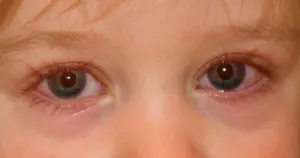There are several possible reasons why your gums may bleed when you brush your teeth.
Bleeding gums when brushing teeth is a common problem for many people, but it is important to understand why it occurs in order to properly address the issue.
One of the main reasons for bleeding is plaque buildup. Plaque is a sticky film of bacteria that forms on teeth and gums, causing inflammation and irritation. If left untreated, plaque can harden into tartar, which can only be removed by a dental professional.

Another common cause of bleeding is gingivitis, a form of gum disease that occurs when plaque and tartar build up along the gum line. This can lead to red, swollen, and bleeding gums.
Hormonal changes, such as those that occur during pregnancy, can also cause bleeding. This is due to increased blood flow to the gums, making them more sensitive and prone to bleeding.
Certain medications, such as blood thinners, can also cause bleeding. These medications make it harder for blood to clot, making it more likely for gums to bleed.
Poor oral hygiene is another common cause of bleeding. Brushing and flossing regularly can help remove plaque and prevent gum disease. Using a soft-bristled toothbrush and a fluoride toothpaste can also help protect gums from bleeding.
How to prevent bleeding ?
In some cases, bleeding gums can be a symptom of a more serious underlying condition, such as leukemia or a vitamin K deficiency. If bleeding persists, it is important to see a dentist or doctor for a proper diagnosis.
To prevent bleeding gums, it is essential to maintain good oral hygiene practices. Brush and floss regularly, and make sure to see a dentist for regular check-ups and cleanings. Avoid smoking and excessive alcohol consumption, as these can also contribute to gum disease.
In conclusion, bleeding gums can be caused by a variety of factors, including plaque buildup, gingivitis, hormonal changes, certain medications, poor oral hygiene, and underlying medical conditions. Regular dental check-ups, proper oral hygiene practices, and avoiding risk factors can help prevent and treat bleeding. If bleeding persists or is accompanied by other symptoms, it is important to seek professional help.
In addition to these measures, your dentist or periodontist may also recommend medications or procedures to help control the bleeding and reduce inflammation in the gums.



